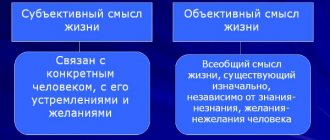Here and now
As humans, we have a unique and powerful cognitive ability to focus our attention on something other than what is happening to us in the here and now. A person may be working on a computer in his office and thinking about something completely different: the vacation he took last month, where to go for lunch, or the fact that he has gained a lot of weight.
This ability to focus our attention on something other than the present is truly amazing. It allows us to learn, plan, and reason in ways that no other animal species can.
Why then did many gurus, philosophers and spiritual teachers encourage us to appreciate the present moment, explaining that the time for happiness is now, and the place for happiness is here. Maybe to be happy we need to remain completely focused on our current experience?
On the other hand, when our minds wander, they are free. We cannot change the physical reality in front of us, but we can choose any imaginary reality in our minds. Perhaps, by distracting ourselves from reality with the help of our minds, we find ourselves in a much happier place? Can mind wandering make us happier? This also makes sense.
Matt Killingsworth wanted to understand this issue, but to do this he needed large-scale data. Scientists have previously found it most difficult to study the fleeting aspects of our daily lives, such as what we are currently doing and what we are thinking about. Thanks to technology, this has become possible.
Matt Killingsworth, Ph.D., studies the nature and causes of human happiness and is a scientist at the Robert Wood Johnson Foundation, one of the largest philanthropic institutions in the United States dedicated to public health.
Matt Killingsworth
Track Your Happiness
A few years ago, Matt Killingsworth came up with a way to study human happiness from moment to moment, in everyday life, on a mass scale and around the world, something scientists had never done before.
Killingsworth created the Track Your Happiness app for iOS smartphones, which allows you to monitor people's happiness in real time. His results show that our happiness is indeed very sensitive to the content of our momentary experience.
One of the most powerful predictors of happiness is something we don't even realize: mind wandering.
How does Track Your Happiness work? People receive signals on their smartphone at random times throughout the day and then answer questions about their experience at the moment immediately before the signal. The idea was as follows. See how people's happiness changes throughout the day. Try to understand how these jumps are influenced by various factors of experience: what people do, who they are with, what they think, and others. And ultimately identify the main causes of happiness.
Three questions were key.
- How are you feeling? On a scale from “very bad” to “very good”.
- What are you doing? The list included 22 activities, including eating, working and watching TV.
- Are you thinking about anything other than what you are doing now? The answer “No” implied that people were focused only on their current activities. The answer "Yes" meant that they were thinking about something else.) In addition, it was specified whether the topic of these thoughts was pleasant, neutral, or unpleasant. Either option meant mind wandering.
The app has collected over 650,000 real-time reports from over 15,000 people. The study involved people aged 18 to 80+, from more than 80 countries, representing 86 professions, with a wide range of incomes, education levels and marital status. This is the largest amount of data of its kind in history.
A little history
The term “here and now” means that everything that is relevant for a person always happens in the present. Feelings, thoughts, desires, fantasies about the past or future are actually in the present. Using this principle makes it possible to make the process of awareness more intense.
“Here and now” or “here and now” is one of the main principles of Gestalt therapy. But it originates in the traditions of Zen Buddhism and other eastern practices. Modern Buddhists still use this principle during meditation. After all, what is meditation? A person is in the present: he sees, hears and feels what is happening around him right now. Gestalt therapists also offer this to their patients.
A wandering mind is an unhappy mind
So what did the scientists find? First, people's minds are constantly wandering.
47% people don't think about what they are doing right now.
Is mind wandering related to what people are doing? Yes. Of the 22 activities, the highest amount of mind wandering—65%—occurs when we take a shower or brush our teeth. 50% of the time our minds wander while working. 40% of the time is when we exercise. Well, we are most focused during... sex - only 10% of the time we are thinking about something else. However, in all activities except sex, people's minds wander at least 30% of the time.
“Mind wandering is not just common, it is omnipresent. It permeates everything we do,” says Matt Killingsworth.
How does mind wandering relate to happiness? Researchers have found that people are significantly less happy when their minds wander than when they are present. This is sad considering how often we are caught up in daydreams. Moreover, the size of this effect is large. How often a person's mind wanders, and the content of their thoughts during those moments, is a much stronger predictor of happiness than, for example, income level.
But maybe if the mind is distracted from something unpleasant, it makes us happier?
As it turns out, people are less happy when their minds wander, no matter what they're doing. For example, people don't really like commuting to work - it's one of the least enjoyable activities. However, people are significantly happier when they are focused only on the road than when they are thinking about something else. This pattern holds true for every activity the researchers measured, including the least enjoyable ones.
“NOT happiness” - cause or effect?
But what comes first? Mind wandering or unhappiness? Maybe the reason for such “escaping reality” into one’s thoughts is that the person is not happy? Could unhappiness cause this process?
The scale of the study provided scientists with multiple responses from each person, and the data obtained provided insight into cause and effect.
As it turns out, there is a strong connection between our mind wandering now and the fact that we feel less happy a short time later. In contrast, there was no connection between feeling unhappy now and having a wandering mind some time later. Scientists believe that mind wandering is a cause, not just a consequence, of unhappiness.
According to Killingsworth, the main reason for the unhappiness of a wandering mind is that in this state we tend to think about unpleasant things: worrying about the future, regretting the past. These negative thoughts, it turns out, have a huge relationship with NOT happiness. However, even when people are thinking about something neutral (as they describe it), they are still significantly less happy than when they are focused on the present. What's more, even when they're thinking about something pleasant, they're still slightly less happy than when they're not mind-wandering at all.
What to do in practice?
What lesson should we learn from the results of this study? We should not and cannot completely stop our minds from wandering. Mind wandering is a by-product of evolution, which has equipped our brains with a “hypothesis testing mechanism.” After all, our ability to revisit the past and imagine the future is extremely useful, allowing us to plan our actions and analyze the past.
However, if these abilities are used unconsciously, the “mechanism” can harm the “operator”. In an information-driven, irritating world, even a notification on our phone can distract us from the task at hand and take our minds away from the present moment.
We should seriously consider that by reducing mind wandering, we can significantly improve the quality of our lives. If we learn to fully immerse ourselves in the present, we can more effectively cope with difficult and unpleasant moments and enjoy the good ones even more. Fortunately, we are well aware of methods that stop the mind from wandering.
We can use the present moment as an anchor of awareness to calm a mind that is being attacked by illegitimate claimants for attention.
Here are a couple of simple techniques you can use during those moments of the day when your attention is unfocused and your thoughts are wandering far from reality.
Exercise 5 of 5
Connect the big artillery - the senses. Notice to yourself all the sensory experiences: visual, auditory, olfactory, gustatory and tactile. What I see? What do I hear? What smells surround me? What flavors are available to me? What do I feel on my skin?
This exercise can enliven and diversify what has become routine, bland, and Groundhog Day-like, like your commute to/home.
Exercise 10 breaths
Take a short break and take 10 deep breaths. Focus on the sensations of the air at the tip of your nose: coolness as you inhale, then neutral sensations between inhalation and exhalation, and finally warmth as you exhale. The strength of this exercise is proportional to the amount of attention you give to your breathing. Taking 10 mindful breaths can help you focus on focused work when you're distracted.
Bridge between past and future
It is important to understand that in Gestalt therapy, the “here and now” method is just a method of working with a person’s consciousness. The present is a specific period of time that a person can influence. At the same time, it is the present that connects the past and the future. We cannot go back to yesterday and change anything, but there are a number of unfinished matters to which the present appeals. And our immediate future is influenced by how we imagine it now. If we are passionate about a task and clearly see the prospects for solving it in the future, then the future becomes the measure of today. It turns out that in the present we pick up the possibilities of the past and throw them into the future, thus gaining new opportunities.
Plan with a positive attitude
It may seem silly to talk about plans in this context. However, psychologists insist that planning for the future is very important for the present - after all, life requires balance. It will be easy to combine this if you do not allow your thoughts about plans to be negative. Try to enjoy the planning process itself, do not focus on things that may get out of control in the future or may not happen at all. Instead, break each big goal down into individual steps and give yourself clear deadlines to achieve them.
Learn to breathe properly and meditate
Technically, meditation can be anything from prayer to concentrated washing of dishes. You need to find your own personal way to fall into this state. The goal of any meditation is to train your brain to be in the present. According to studies by Western scientists, daily meditation helps you focus on what is important, increases productivity, improves heart health and function, reduces stress and even slows down the aging process.
Calm and controlled breathing is where any meditation technique begins. This is a great way to focus your energy and calm your mind. This practice can be especially helpful for those experiencing stress. When we feel relaxed and strong, our breathing is deep and rhythmic, providing us with the oxygen we need to feel normal. This also works in the opposite direction: if we breathe correctly, we relax and fill ourselves with energy.
Don't depend on social networks
To learn to live in the present, it is enough to give up things that distract from life itself and what is happening in it.
Our smartphone is the main culprit in keeping us away from the present moment as it constantly distracts us. But we must admit: it is no longer possible to live without gadgets and technology. However, we can control how much time we spend on them. Scrolling through your Facebook feed or photos on Instagram disconnects us from reality, so it’s worth taking technology breaks and setting yourself a limit on social networks. It’s better to ask yourself: are the hours spent reading other people’s posts helping us? If not, then it’s worth spending this time on yourself and achieving your goals.











